Integrating Sugarlab API into Adult Dating Apps: Get Raunchy in 3 Steps
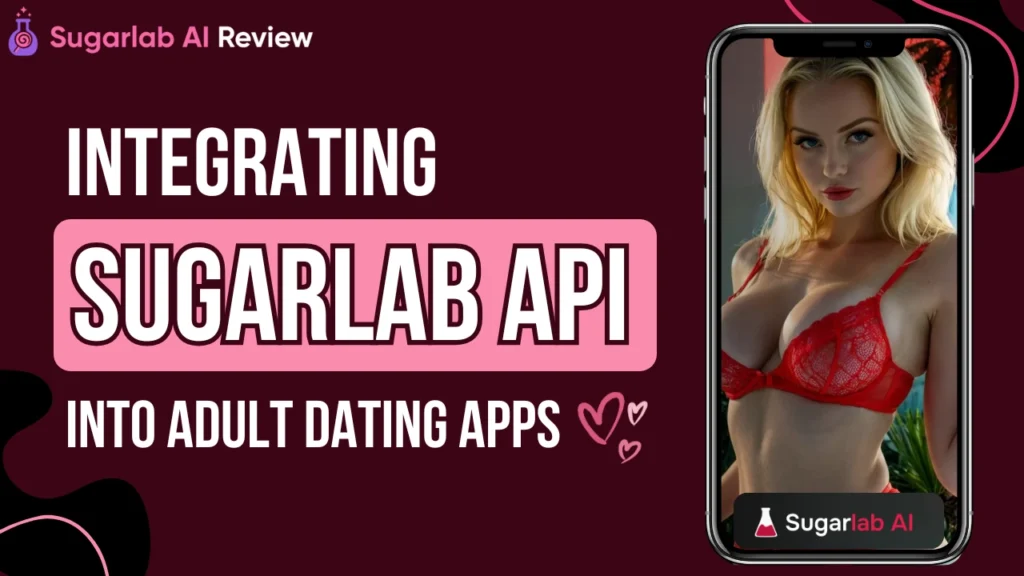
Tired of your dating app getting lost in the sea of swipes? In a world where everyone’s fighting for a bit of screen time, offering the same old “chat and match” formula is a fast track to obscurity.
Users are getting bored. They crave something more exciting, more personal, and let's be honest, a lot more naughty.
What if you could give them the power to create their wildest fantasies, right inside your app?
Imagine letting your users generate steamy, custom AI images, design their perfect virtual partner, or engage in spicy AI porn chats that feel shockingly real. This isn't just a gimmick; it's about creating an experience so sticky that they'll never want to leave.
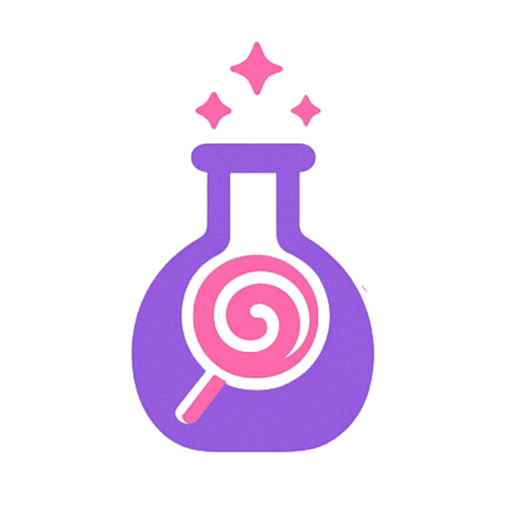
Enter the Sugarlab API. This isn't just another tech tool; it's your secret weapon.
Designed for creating high-quality, uncensored adult content, this AI porn API lets you plug the power of a top-tier AI porn generator directly into your platform.
We're talking realistic images, deep customisation, and a secure environment that keeps everything private.
Ready to give your app the ultimate glow-up?
Here’s how you can integrate the Sugarlab API in three simple steps and start offering features that will make your competitors weep.
Why the Sugarlab API Is a Game-Changer
Before we get our hands dirty with code, let's talk about why this is such a big deal.
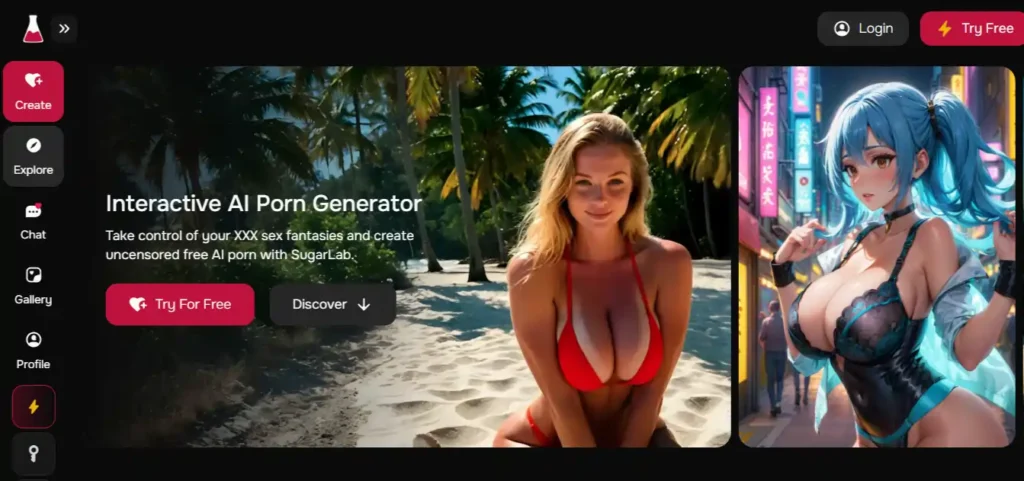
Integrating the Sugarlab API isn't just about adding a new feature; it's about unlocking new ways to engage and monetise your user base.
Integrating the Sugarlab API: The 3-Step B2B Tutorial
Right, let's get down to the fun part. Here’s a developer-friendly guide to getting the Sugarlab API up and running inside your adult dating app.
Get Your Credentials and Set Up
First things first, you need to get your API key. This is your golden ticket to the world of AI-generated smut.

Now, let's set up your Python environment. You'll need the requests library to communicate with the API. If you don't have it, open your terminal and install it.
bash
pip install requestsNext, create a Python file (e.g., sugarlab_integration.py) and set up your credentials. It’s good practice to store your API key as an environment variable rather than hardcoding it.
python
import requests
import os
# Best practice: load your API key from environment variables
API_KEY = os.getenv("SUGARLAB_API_KEY", "YOUR_API_KEY_HERE")
BASE_URL = "https://api.sugarlab.ai/v1" # This is a hypothetical URL
HEADERS = {
"Authorization": f"Bearer {API_KEY}",
"Content-Type": "application/json"
}
print("Environment set up. Ready to make some magic!")Authenticate and Generate Your First Image
With your setup complete, it's time to make your first call.
We’ll start by hitting a hypothetical /generate-image endpoint to create a simple, spicy image. This confirms your connection is working before you move on to more complex stuff.
The API uses a POST request, where you send a JSON payload containing all your desired specifications.
The parameters available reflect Sugarlab's powerful customisation features, such as prompts, styles, and even negative prompts to exclude things you don't want to see.
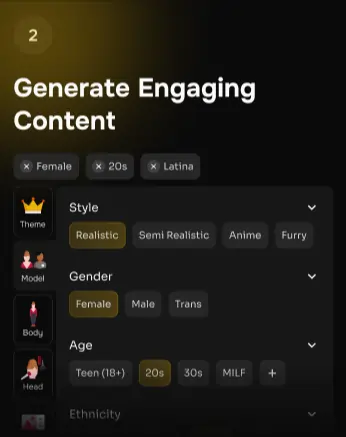
Here's how to generate an image of a character.
python
def generate_ai_image(prompt, negative_prompt=""):
"""
Sends a request to the Sugarlab API to generate an image.
"""
endpoint = f"{BASE_URL}/generate-image"
payload = {
"prompt": prompt,
"negative_prompt": negative_prompt,
"style": "Realistic", # Or "Anime"
"aspect_ratio": "9:16", # Perfect for mobile
"quality": "high"
}
try:
response = requests.post(endpoint, headers=HEADERS, json=payload)
response.raise_for_status() # This will raise an error for bad responses (4xx or 5xx)
# The API would likely return a JSON object with the image URL
image_data = response.json()
print("Image generated successfully!")
print(f"Image URL: {image_data.get('url')}")
return image_data
except requests.exceptions.HTTPError as err:
print(f"Damn, an HTTP error occurred: {err}")
print(f"Response body: {err.response.text}")
except Exception as err:
print(f"Shit, something else went wrong: {err}")
# Let's give it a whirl!
prompt_text = "A stunningly beautiful woman with red hair, freckles, wearing a leather jacket, in a neon-lit bar, smirking at the camera"
generate_ai_image(prompt_text, negative_prompt="blurry, poorly drawn hands")If everything is set up correctly, this script will print a URL to your freshly generated AI porn image. You've officially tapped into the power of Sugarlab!
Advanced Integration for a Custom User Experience
Now for the real magic.
A single prompt is fun, but giving your users full control is what will set your app apart. This is where you expose Sugarlab's deep customisation options directly to your users through your app's interface.
Imagine a “Create Your Dream Date” feature in your app. A user could select from dropdowns for ethnicity, hair style, body type, and even boob and ass size. Your app would then bundle these choices into a detailed API payload.
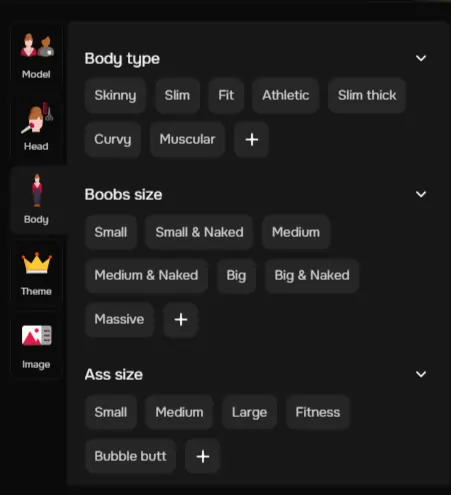
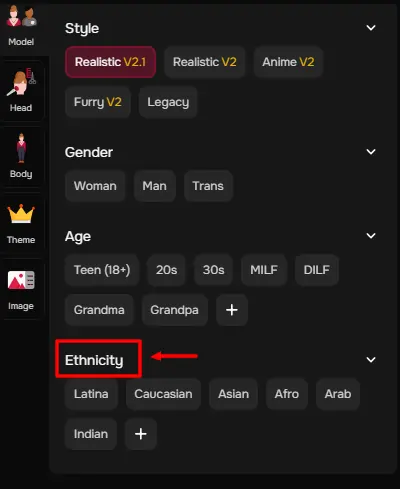
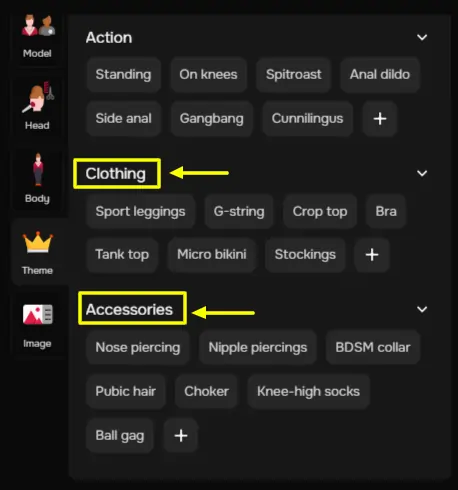
Here’s a more advanced code snippet showing how you could construct this request.
python
def create_custom_character_image(user_preferences):
"""
Generates an image based on detailed user preferences.
"""
endpoint = f"{BASE_URL}/generate-image-advanced" # A hypothetical advanced endpoint
# user_preferences would come from your app's front-end
# Example: {"ethnicity": "Latina", "hair_color": "black", "body_type": "curvy", "ass_size": "large", ...}
prompt = (
f"Ultra-realistic photo of a {user_preferences.get('ethnicity', 'random')} woman "
f"with {user_preferences.get('hair_color', 'brown')} hair. "
f"She has a {user_preferences.get('body_type', 'athletic')} body, "
f"wearing {user_preferences.get('clothing', 'a sundress')}. "
f"Location is a {user_preferences.get('location', 'sunny beach')}."
)
payload = {
"prompt": prompt,
"style": "Realistic",
"tags": { # Using tags for finer control, as seen in Sugarlab's generator [17]
"ethnicity": user_preferences.get("ethnicity"),
"hair_color": user_preferences.get("hair_color"),
"body_type": user_preferences.get("body_type"),
"ass_size": user_preferences.get("ass_size"),
"boobs_size": user_preferences.get("boobs_size"),
"lighting": user_preferences.get("lighting", "golden hour")
},
"aspect_ratio": "1:1" # Good for profile pictures
}
print("\nSending advanced request with payload:")
print(payload)
# Reusing the request logic from the previous function
# In a real app, you would refactor this into a helper function
try:
response = requests.post(endpoint, headers=HEADERS, json=payload)
response.raise_for_status()
image_data = response.json()
print("Custom character image generated successfully!")
return image_data
except Exception as err:
print(f"Bollocks, the advanced call failed: {err}")
# Simulating a user's choices from your app
user_choices = {
"ethnicity": "Japanese",
"hair_color": "pink",
"body_type": "petite",
"ass_size": "small",
"boobs_size": "perky",
"clothing": "school uniform",
"location": "a classroom"
}
create_custom_character_image(user_choices)By building a function like this, you can translate simple user selections into complex, highly-detailed prompts for the Sugarlab API.
This gives your users an intuitive way to create exactly what they're fantasising about, making your app the ultimate playground for adult creativity.








